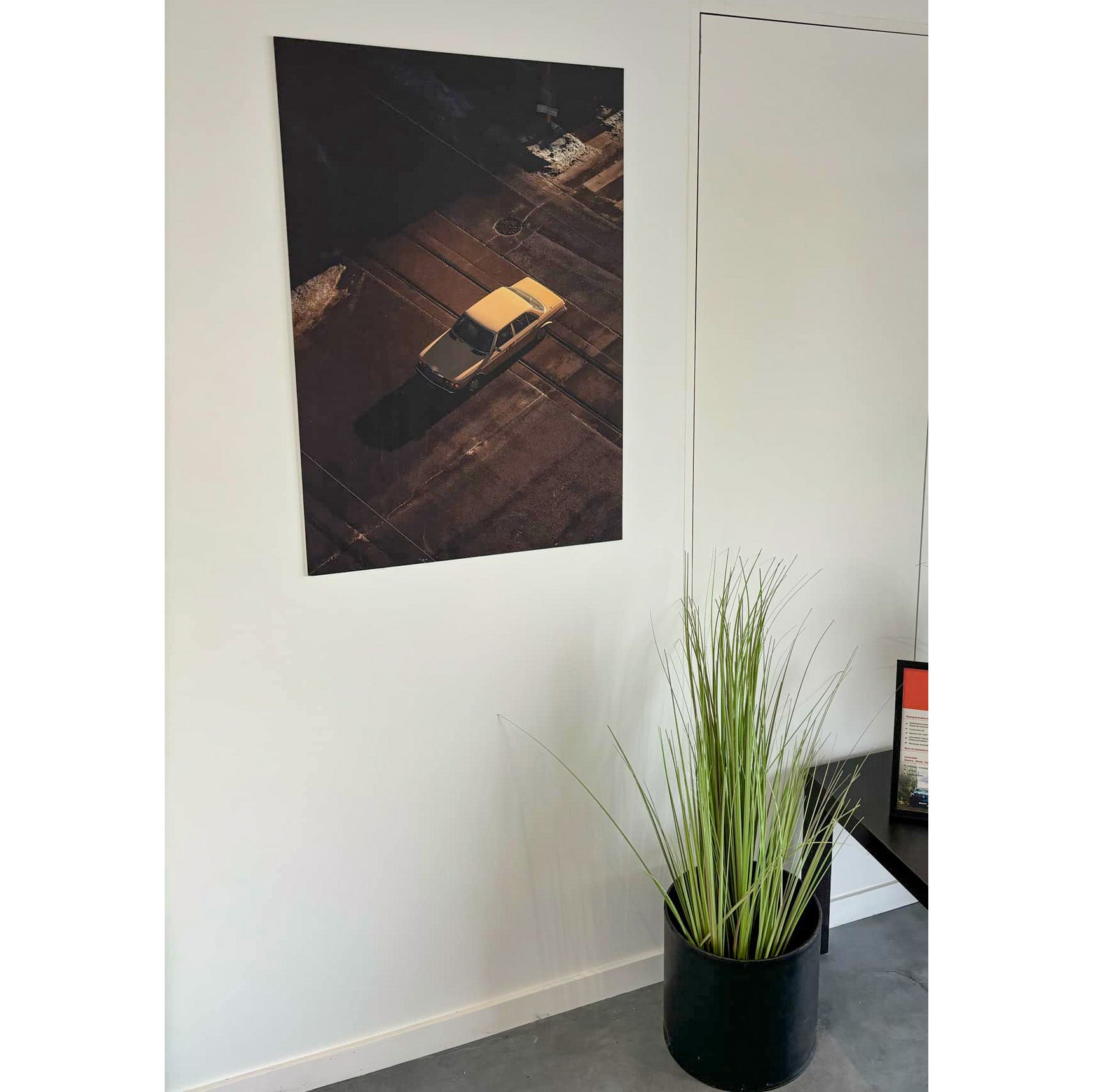Art print | Chrysanthemum Medusa - Alois Lunzer


View from behind

Frame (optional)
Art print Chrysanthème Méduse - Alois Lunzer – Engaging introduction
In the captivating universe of art, certain works stand out for their ability to capture the imagination and transcend time. "Chrysanthème Méduse - Alois Lunzer" is one of those creations that, through its beauty and boldness, invites deep contemplation. This painting evokes not only refined aesthetics but also a symbolic richness that challenges the viewer. Through the delicate representation of nature, Lunzer manages to establish a dialogue between the visible and the invisible, between the fragility of flowers and the mythological power of Medusa. This piece is an invitation to explore the intricacies of floral art, but also to question the ancient stories that nourish our culture.
Style and uniqueness of the work
Alois Lunzer's distinctive style manifests in every brushstroke of "Chrysanthème Méduse." The artist skillfully plays with colors, creating a visual harmony that evokes both softness and tension. The chrysanthemums, symbols of life and renewal, are treated here with a delicacy that gives them an almost ethereal dimension. Lunzer succeeds in capturing the essence of these flowers while integrating them into a mythological context, where Medusa, an iconic figure of Greek mythology, stands as both a protective and threatening presence. This duality is reflected in the textures and shapes, where floral beauty clashes with the power of an ancient story, creating an unparalleled richness.
The artist and his influence
Alois Lunzer, an artist with a rich and varied background, has established himself as an essential figure in the artistic landscape. His ability to fuse elements of nature with mythological references demonstrates a unique sensitivity. Influenced by the great masters of the past, Lunzer has developed a style that is entirely his own, marking his era. His work is not limited to simple representation; it is the result of a deep reflection on nature, beauty, and the human condition. Through "Chrysanthème Méduse," Lunzer reminds us that art is a

Matte finish

View from behind

Frame (optional)
Art print Chrysanthème Méduse - Alois Lunzer – Engaging introduction
In the captivating universe of art, certain works stand out for their ability to capture the imagination and transcend time. "Chrysanthème Méduse - Alois Lunzer" is one of those creations that, through its beauty and boldness, invites deep contemplation. This painting evokes not only refined aesthetics but also a symbolic richness that challenges the viewer. Through the delicate representation of nature, Lunzer manages to establish a dialogue between the visible and the invisible, between the fragility of flowers and the mythological power of Medusa. This piece is an invitation to explore the intricacies of floral art, but also to question the ancient stories that nourish our culture.
Style and uniqueness of the work
Alois Lunzer's distinctive style manifests in every brushstroke of "Chrysanthème Méduse." The artist skillfully plays with colors, creating a visual harmony that evokes both softness and tension. The chrysanthemums, symbols of life and renewal, are treated here with a delicacy that gives them an almost ethereal dimension. Lunzer succeeds in capturing the essence of these flowers while integrating them into a mythological context, where Medusa, an iconic figure of Greek mythology, stands as both a protective and threatening presence. This duality is reflected in the textures and shapes, where floral beauty clashes with the power of an ancient story, creating an unparalleled richness.
The artist and his influence
Alois Lunzer, an artist with a rich and varied background, has established himself as an essential figure in the artistic landscape. His ability to fuse elements of nature with mythological references demonstrates a unique sensitivity. Influenced by the great masters of the past, Lunzer has developed a style that is entirely his own, marking his era. His work is not limited to simple representation; it is the result of a deep reflection on nature, beauty, and the human condition. Through "Chrysanthème Méduse," Lunzer reminds us that art is a









